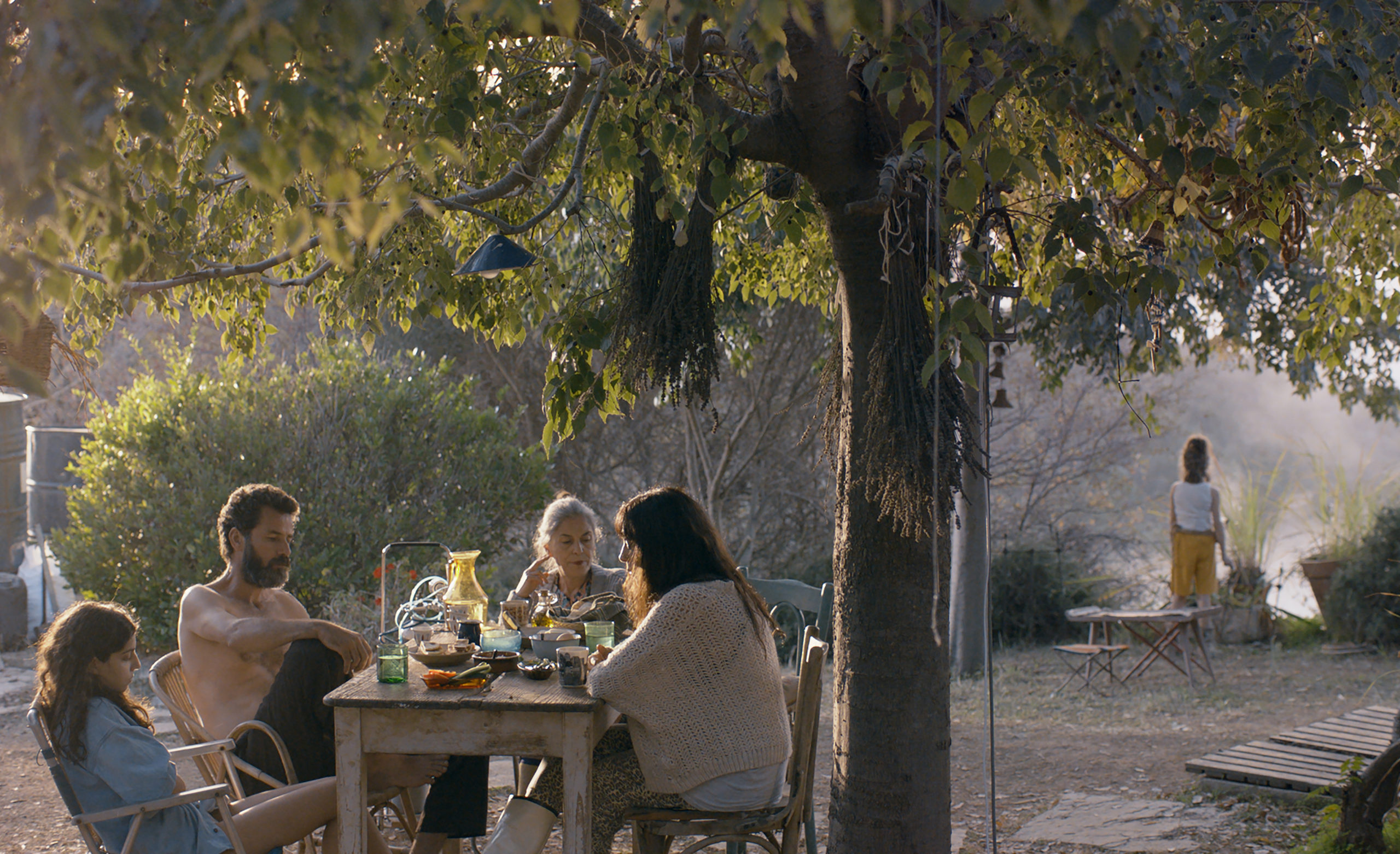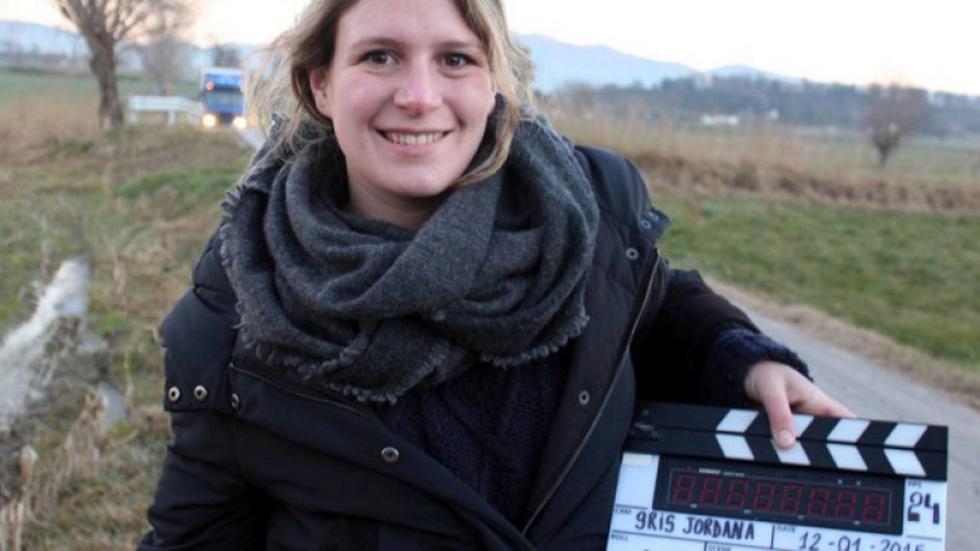A Lebanese family flees the environmental crisis in Beirut and isolates themselves in the mountains, far from the pollution of the city. But the presence of a landfill next to their home threatens to break the intimate balance of this family unit. The plot of Mounia Akl's debut feature film, Costa Brava, Lebanon, presents a dystopian near-future that is not at all flattering, unfortunately, very plausible.
"Mounia knew that she wanted to write about what was happening in Lebanon at the time, which was affecting her personally. And a strange thing happened: when we started writing the script, the country was in the midst of a sanitary crisis, but they had not yet experienced the tragedy involving the explosion in the port of Beirut, nor were they suffering the severe economic crisis they have now", explains Clara Roquet (Vic, 1988), co-screenwriter of Costa Brava, Lebanon and the director's accomplice since they met while studying at the Columbia University.
Roquet goes on to explain the keys to this Lebanese-Spanish co-production: "We decided to talk about a Lebanese family in a dystopian near future where everything deteriorates, deciding as a result to isolate themselves from this disaster in the mountains. The strange thing was that when we started shooting the film, that dystopia arrived and it was much worse than we had imagined. For example, we had written that the main characters would wear masks, because of the contamination, cholera and so on. Suddenly, a pandemic forces everyone to wear a mask. Reality imposes itself and ends up trapping you," the filmmaker.
Following the premiere of her debut feature, Libertad, which she presented at the Critics' Week at the Cannes Film Festival, Clara Roquet is going through a golden moment. As a scriptwriter for Jaime Rosales (with Petra) and Carlos Marques-Marcet (with 10,000 Km. and Els dies que vindran she won two Gaudí awards, and a third with her short film, El adiós), she has just written Que nadie duerma, the new feature film by Antonio Méndez Esparza, based on the novel by Juan José Millás of the same name. In addition, she is working with Elena Martín on the second feature film by the director of Julia Ist, and on the new film by Carlos Marques-Marcet, who, in fact, is the editor of Costa Brava, Lebanon.

Costa Brava, Lebanon, by Clara Roquet
How did your relationship with Mounia Akl come about?
We always talk about a kind of Mediterranean connection because we met trying to get in a queue of Americans waiting to pick up their student card (chuckles). We became friends right away, we created a very tight bond, a very diverse family: a Chilean, a Georgian, an Icelandic, an Austrian, Mounia who is Lebanese... We hit it off, we both have similar concerns and obsessions, and very similar interests. We started collaborating when she was the editor of my short film El adiós, and then we wrote her short film Submarine together, which she presented at Cannes in 2016. That's when we started talking about the possibility of making a feature film together. In fact, we developed Libertad and Costa Brava, Líbano almost at the same time, I think that's why there are so many echoes of one in the other’s work.
Among those echoes there is a very similar look at family units, depicting adolescents in the transition to adulthood with a strong emphasis on the figure of the grandmother.
There are works, like the ones I've done with Carlos, in which you start working on something that he already has more or less thought out. But with Mounia we start from scratch. We have a common vision, we are interested in similar themes and we create the protagonist's family and their identities, as well as that adolescent awakening. The grandmothers' influence, which also appears in Libertad and El adiós, reflects a desire to portray generational change and the loss of collective memory, especially feminine, and of identity. Probably, of all my experiences as a scriptwriter, Costa Brava, Lebanon is the film that I feel closest to me, that I feel most mine. It' s rare to achieve that kind of involvement with a film you write. I'm very grateful to Mounia for having been able to make it under these conditions.
Is that involvement important for writing?
It helps a lot. In any case, in almost all my scripts there is a personal involvement, they have been projects that have a lot to do with my own vision. It's true that I've made some things that are less in line with this drive, but films like 10,000 km, Petra, Els dies que vindran and Costa Brava, Lebanon, have a lot in common with that emotional place from which my short films and my first feature film have also come.
Among the things you share with Mounia, maybe there is also a certain hopeless and very generational outlook?
I think Mounia's outlook is quite disenchanted, yes. Seeing how this Lebanese revolution has been of no use.... Somehow she has lost faith. This happens to me on other levels, because here things are not as bad as in Lebanon, but obviously there are a series of concerns that are difficult to solve. Maybe it is something generational, not seeing a light at the end of the tunnel, not seeing how we are going to get out of issues like climate change. I suppose that this disenchantment somehow penetrates our cinematographic vision.
You are about to release Libertad, after keeping it in storage because of the pandemic.
I'm so eager to share it with people... It came about because I had written two different scripts: one about the relationship of a migrant woman who meets her daughter again, and the other about a bourgeois family and their relationship with their teenage daughter. It was my tutor at university, Andy Bienen, the writer of Boys Don't Cry, who told me that I had to unify them, because they didn't work separately, and it was a great piece of advice, I suddenly saw the sense of it all.
With Libertad you become part of that magical generation of female directors who have emerged from Catalonia.
There is a clear boom of female directors and of the same generation. Carlos Marques-Marcet always says he also wants to be one of Les amigues de l'Àgata (laughs). We agree on many things, in many cases we maintain a friendly relationship, and we collaborate with each other. Belén Funes, for example, has been Libertad's script supervisor. Carla Simón has seen all the editing cuts of the film and I have read all the screenplay versions of her new film, Alcarràs. I also worked as script supervisor with Elena Trapé.... We have a very close relationship and we help each other as much as we can in a very natural way. And a beautiful thing happens, because we create references for young women who are starting to make films.
The figure of Carlos Marques-Marcet is very present in your career.
We love each other very much, and working with Carlos feels very organic, very natural, we understand each other so well... despite the fact that he has an unconventional working system, which has a lot to do with editing, because he is an editor: Carlos starts his films with a series of themes in his head that he wants to talk about and with some actors, so he spends a lot of time rehearsing with them, and from there he gets a lot of material to write, or order, and then turn it into a script. Actually we are writing his next film, Polvo serán, we'll see if he keeps the title (laughs).







